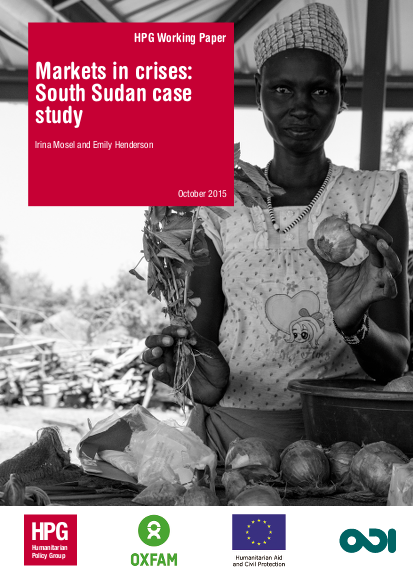
Not long after achieving independence, South Sudan descended into conflict, which has fuelled displacement and food insecurity. Although markets continue to function in the country, humanitarians have paid relatively little attention to market-based responses to the crisis.
Looking primarily at Juba, this paper seeks to inform humanitarian action in war environments by exploring how and why different market actors adapt, cope or fail during crises. It also considers how power and social relations determine the functioning of markets.
Highlighting that markets cannot be understood in isolation, the paper looks at how aid actors need to understand wider market systems, networks, trade relationships as well as institutional factors when engaging with markets. Aid interventions are often too localised in their approach and only a handful of agencies take more systemic and conflict sensitive approaches.
Broader political economy issues linked to currency and corruption are found to be at the root of key problems facing traders, but these issues are often not looked at or are poorly understood by aid agencies.